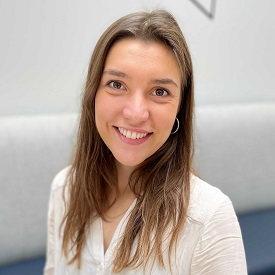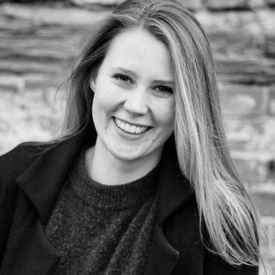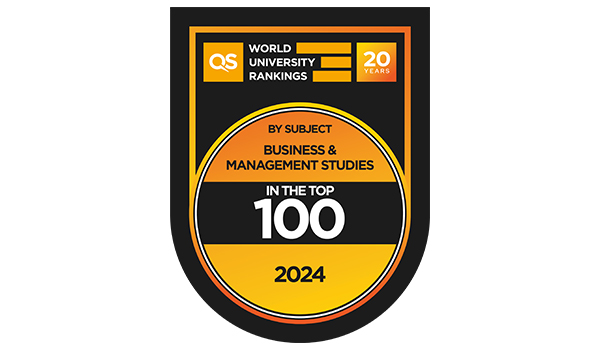Introduction
The ability to empower organisations and their people is a highly sought-after skill, and the focus on developing, valuing, and managing human resources has never been greater. The Human Resources and Consulting MA blends strategic HR, development and consulting to develop your expertise in working with and through people.
Whether you are a recent graduate or already working in HR, management education or consultancy, your mind will be challenged as we train you to think and act critically and effectively.
This is not a programme focused on simplistic ‘models’ or techniques. Instead, we will teach you to hone the capabilities and skills necessary to develop people and knowledge effectively.
You will put your newly developed conceptual abilities into practice with real-life organisations, including how to intervene constructively in strategic issues and stimulate change through consulting. We will encourage you to work collaboratively, sharing ideas and experiences with your international classmates and tutors. As our graduates tell us, that’s often how you will learn the most.
We provide a supportive environment, centred around our students. You will be taught by distinguished academics who research and publish at the very highest level. You will also hear from guest speakers ranging from internal managers to experienced external consultants. Our learning approach includes critical analysis, experiential learning and interactive processes. Even your dissertation will be stimulated through peer-supported research.
Programme outcomes
Equipped with sophisticated conceptual, analytical and practical skills, many of our graduates secure roles in consulting on the people side of organisations. Others work in human resource development and management, organisational development, or leadership and management development.
Learning design
A central philosophy of the programme is a belief in the importance of self-directed study, coupled with collaborative working.
The programme takes an experiential approach to learning and development, which is why project work is used to complement academic study. Throughout the MA, you are actively encouraged to diagnose and explore issues that are central to your individual learning – and encouraged to question and challenge philosophies and theories and re-examine established beliefs and managerial practices.
Through its various strands and activities, the programme aims to:
- Develop your skills and awareness as a responsive, reflective practitioner, able to analyse and respond to changing needs and evolving organisational contexts
- Develop your critical thinking skills and your analytical capabilities
- Increase your confidence and skills in working with others within an international learning community
- Develop your ability to form balanced and reasoned judgements about the value, strengths and weaknesses of your own work and that of others
We look for the following qualities in those who join the programme:
- Intellectual curiosity, enthusiasm and stamina, and the capacity to grapple with complex, multi-faceted issues and abstract concepts
- Flexibility and open-mindedness in your thinking and the readiness to challenge your own assumptions and preconceptions
- Receptiveness to the ideas of other members of the group and to supporting the development of others through constructive debate and feedback
- An active approach to learning
- Critical engagement in individual and group learning
Programme content
The modules on the MA in HR and Consulting are taught over three terms, with a break at Christmas and Easter. Some of the modules span across terms. The first term sets the groundwork for the programme with several short and small assessments and a focus on key HR, consultancy work, development and teamwork knowledge and skills.
Alongside the modules listed in the course structure, there is a careers and learning development element, which provides interactive group sessions over terms one and two that will equip you with skills to make the most of your learning, study and career opportunities.
During your second term, from January to March, you will engage in a consulting project with an external client organisation, as well as develop consultancy knowledge in HR and research methods. During this term, you will also begin to work on your dissertation proposal.
From May to July, you develop your advanced knowledge in leadership and work on your master's dissertation in a learning group, with support from your dissertation supervisor. The dissertation is your opportunity to focus on an HR or consulting topic of your choice. You will submit it at the end of August, at the end of your master's programme.
Consulting projects
The Organisational Diagnosis and Consulting project is where you can put to actual practical use the skills in consultancy, research and project management that you have been building during term one. It will also draw on your previous work experience.
The project begins in January, and you work in a team with support from a tutor. Clients for the project typically come from both the private and public sectors and may include large and small organisations.
In the first term, over ten weeks, you undergo intensive training in consultancy techniques and skills, which will deepen your understanding of the nature of consultancy and what it means to be a consultant, whether internal or external. In addition to the academic input, you will be given very practical advice by practitioners from consultancy organisations on how to manage a consultancy intervention, in particular, how to manage the client relationship.
In the second term, you move into the client project process and will be supervised by a tutor. You work to a brief supplied by your client on an HR-related area they have identified as important for their organisation. Your task as a team is to provide a more detailed diagnosis of the issue, collect and analyse relevant data, and come up with sound and implementable recommendations as to what needs to be done.
Your tutor will support you throughout this process as needed, but the student group is responsible for managing the client relationship.
















